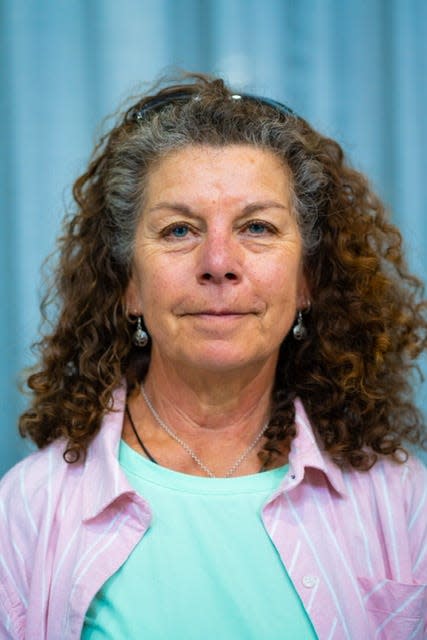My Turn: A look at America's energy independence this holiday

- Oops!Something went wrong.Please try again later.
Independence Day weekend is here.
Some of you may be in the throes of celebrating as this could be an extra long break if you are fortunate enough to take Monday off. This is the holiday where I need to remind myself of the real meaning of this day, how we got here and where are we headed.
So as a brief recap of history, Great Britain and King George III had required taxes to help eliminate the debts Great Britain created as they fought the French and Indian War. They created the Stamp act in March 1765, the Townsend Acts in June and July 1767 and the Tea act of 1773. At which point, since the American colonies had no say in these decisions, decreed ”Taxation without Representation,” a concept that would push towards a revolution.
The Boston Massacre and the Boston Tea Party were two events that continued to fuel the discontent between the colonists and the British. The massacre occurred on March 5, 1770, when British soldiers fired on and killed five men, after they had been heckling them, possibly throwing snowballs and other items at the soldiers.
Paul Revere and Samuel Adams proclaimed this as a bloodbath, and protesters rallied in the streets. The Boston Tea Party was in response to the Tea Act (giving the British East India Company a monopoly on tea sales in the colonies. In 1773, colonists took over the Boston Harbor and famously dumped/smashed 340 boxes of British East Indies Tea into the ocean, worth over $1,700.000 in today’s money.
These acts escalated to the American Revolution, and the Declaration of Independence, signed on July 4, 1776.
Today, while we are not fighting for our independence from a sovereign country, we continue to fight for our energy independence, looking for ways to be free from dependence on fossil fuels. The American Council on Renewable Energy (ACORE) published a report in October 2018 and indicated that it is essential to find access to cheap and reliable electricity for our economy to function, for national security and to sustain our way of life.
Early in 1912, President William Howard Taft was concerned that an impending oil shortage could weaken the US Navy. In 2007, President Bush signs the Energy Independence and Security Act of 2007, “a step toward reducing dependency on oil, confronting global climate change, expand the production of renewable fuels and giving future generation of our country a nation that is stronger, cleaner and more secure.”
He was first to introduce alternative fuel sources, requiring fuel producers to include alternative fuels (ethanol for example) in their products. This required fuel producers to use at least 36 billion gallons of biofuel in 2022. He also increased the fuel economy standards for vehicles: minimum of 35 miles per gallon by 2020. This bill also required improvements in the lighting and appliance worlds, all attempting to make this country energy independent.
Today, we understand that to preserve what is left of this planet it will take many different ideas and every small step that we make counts towards the combined efforts to be more energy independent. While we struggle with the best renewables, we know that there is probably no perfect energy fuel. When one talks of using water to make hydrogen fuel, there are places in draught, when we speak of ethanol from corm, there are people to feed, hydro power is dependent on dams, but what about the fish and aquatic habitats? Wind power and solar power may be our best options, but sometimes there is no wind, and we do have cloudy days. So goes the arguments for and against renewables. The best we all can do is to conserve and use what we need, be mindful of how we “spend” our fuels and be good stewards of our resources.
I wish for all of Gaston County residents to have a fun filled, firework-safe holiday and be appreciative of the sacrifices made in our past that allow our independence that we love today. Remember to recycle your cardboard, plastic bottles, glass bottles, aluminum cans and use reusable plate and cups!
Nan Kirlin is the recycling coordinator for Gaston County.
This article originally appeared on The Gaston Gazette: A look at America's energy independence this holiday
